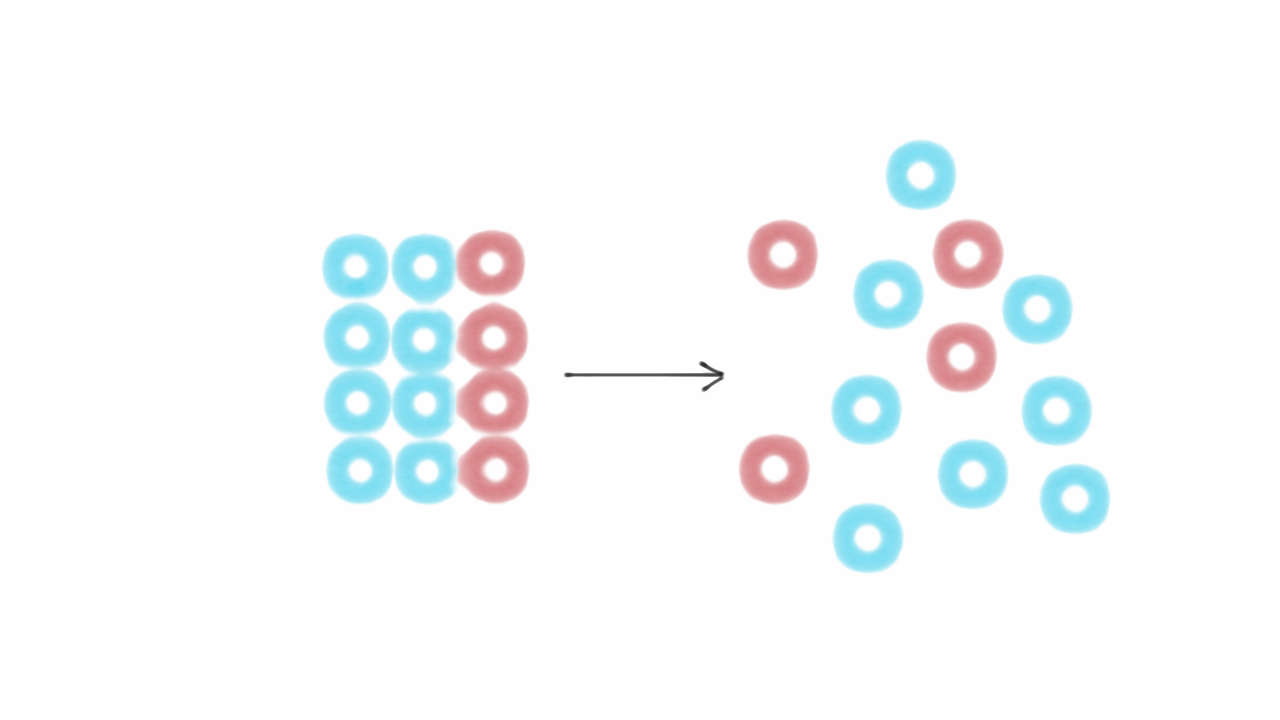
Metadata
- Author: Farnam Street
- Full Title:: Entropy: The Hidden Force That Complicates Life
- Category:: 🗞️Articles
- Document Tags:: Ser Data Driven No Es De Guapas,
- URL:: https://fs.blog/2018/11/entropy/
- Finished date:: 2023-12-04
Highlights
Astronomer Arthur Eddington pioneered the concept of the Arrow of Time in 1927, writing:
Let us draw an arrow arbitrarily. If as we follow the arrow[,] we find more and more of the random element in the state of the world, (View Highlight)
As a student of business administration, I know that there is a law of evolution for organizations as stringent and inevitable as anything in life. The longer one exists, the more it grinds out restrictions that slow its own functions. It reaches entropy in a state of total narcissism. Only the people sufficiently far out in the field get anything done, and every time they do, they are breaking half a dozen rules in the process.” — Roger Zelazny, Doorways in the Sand (View Highlight)
Let’s imagine that we start a company by sticking 20 people in an office with an ill-defined but ambitious goal and no further leadership. We tell them we’ll pay them as long as they’re there, working. We come back two months later to find that five of them have quit, five are sleeping with each other, and the other ten have no idea how to solve the litany of problems that have arisen. The employees are certainly not much closer to the goal laid out for them. The whole enterprise just sort of falls apart. (View Highlight)
For every useful arrangement of affairs towards a common business goal, there are many orders of magnitude more arrangements that will get us nowhere. For progress to be made, everything needs to be arranged and managed in a certain way; we have to input a lot of energy to keep things in an ordered state (View Highlight)
Given a strong enough goal, a good enough team, and the right incentives, perhaps that group wouldn’t need a lot “outside ordering” — they would manage themselves. (View Highlight)
From the Enlightment book
The … ultimate purpose of life, mind, and human striving: to deploy energy and information to fight back the tide of entropy and carve out refuges of beneficial order.” — Steven Pinker (View Highlight)
Divergent behavior escalates — a concept known as the “broken windows” theory. Sociologist Kenneth Bailey writes:
When I began studying the notion of entropy it became clear to me that thermodynamic entropy was merely one instance of a concept with much broader applications … I became convinced that entropy applied to social phenomena as well. (View Highlight)
Sociologists use an intuitive term for this phenomenon: social entropy. Societies must expend constant effort to stem the inevitable march towards dangerous chaos. The reduction of social entropy tends to require a stable government, active law enforcement, an organized economy, meaningful employment for a high percentage of people, infrastructure, and education (View Highlight)
Not only do living things lessen the disorder in their environments; they are in themselves, their skeletons and their flesh, vesicles and membranes, shells, and carapaces, leaves, and blossoms, circulatory systems and metabolic pathways—miracles of pattern and structure. It sometimes seems as if curbing entropy is our quixotic purpose in the universe (View Highlight)
There are two types of stability: active and passive. Consider a ship, which, if designed well, should be able to sail through a storm without intervention. This is passive stability. A fighter jet, in contrast, requires active stability. The plane can’t fly for more than a few seconds without having to adjust its wing (View Highlight)
People get in trouble when they confuse the two types of stability (View Highlight)

Metadata
- Author: Farnam Street
- Full Title:: Entropy: The Hidden Force That Complicates Life
- Category:: 🗞️Articles
- URL:: https://fs.blog/entropy/
- Finished date:: 2024-01-13
Highlights
five are sleeping with each other (View Highlight)